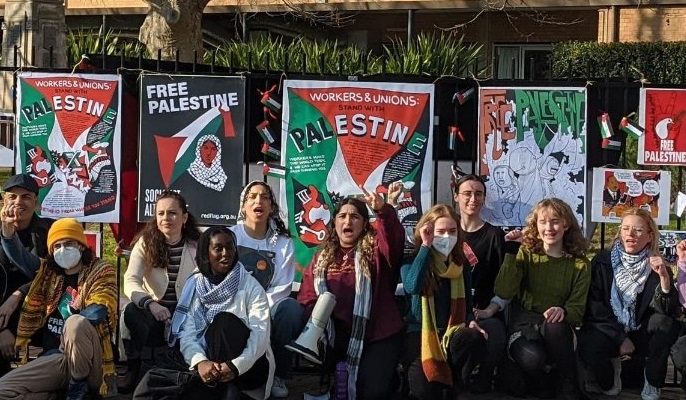‘Palestine is one of the most barbaric sites of oppression in the world today, and even amidst pulverised homes and hopes, Palestinians continue to resist in the most inspiring ways. This deserves our boldest solidarity. Just as student unions have always fought in the past for other issues, UMSU, our student union, should commit its support for BDS and Palestine’ – Raphael, Jewish student member of Students for Palestine – Unimelb
On Monday, I spent my afternoon listening to pro-Israel students provide arguments against the passing of a Palestine solidarity motion at a University of Melbourne Student Union (UMSU) meeting. This second Palestine solidarity motion was moved by a Palestinian international student, Dana, seconded by an Arab student, Ahmed, and drafted after a lengthy consultation process with students that the union represents, led by UMSU and its People of Colour Department. The motion successfully passed with 13 votes for, 3 votes against.
The night before, I had seen a tweet by Australia Labor Israel Dialogue (ALID) mobilising against Palestinian National Tertiary Education Union National President candidate and casual academic Fahad Ali. Ali’s leadership has been instrumental in a new NTEU’s endorsement of guidelines for the international academic boycott of Israel.
A few days ago, Palestinian writer Muhib Nabulsi problematised the practice of Israeli-owned restaurants serving Palestinian and Arab food as ‘Israeli food’ in a series of social media posts. Shortly after, the Australia/Israel and Jewish Affairs Council—alongside other Zionist organisations in so-called Australia and overseas—began harassing him online. They took particular issue with his Emerging Critics Fellowship at the Sydney Review of Books; in an attempt to pre-emptively rob him of future professional opportunities, AIJAC painted him as an anti-semite and accused him of incitement—despite the fact that all of his posts were deemed within the community guidelines of the social media platform in question.
Read the article by Tasnim Mahmoud Sammak in Overland.

